- Home
- Robert J. Crane
Starling (Southern Watch Book 6) Page 11
Starling (Southern Watch Book 6) Read online
Page 11
Why should she? He’d watched his father die this morning. How could he be okay?
Nora tried to figure out what to say next. She hadn’t gotten much in the way of information about how John had actually died, and Mack wasn’t talking. The sheriff had promised the body, had given her the number for a funeral home, but she was unwilling to deal with it today. He’d been polite enough to ask if there was anyone else he could call for her, had told her that no, she didn’t need to identify the body if she didn’t want to. She didn’t want to, was too stunned to press any further. She’d just collected Mack and gotten out of there, wanting to get home where she could process this—this unexpected event, this emotion that was cracking its way through her walls.
“Do you want to talk about it?” Nora asked lamely. She almost cursed herself for it as soon as she said it, bumping down a side road. She didn’t know Calhoun County like John had. He had been born and raised here; it was why he came back here to hunt on a spread his parents had. It was the only contact he had with them, she thought ruefully, seeing them once a year for a few minutes as he went up into the hills above their house. She hadn’t even thought to call her in-laws, she realized dimly. Well, that was all right. They all hated each other anyway, so fuck them, they could wait.
Mack didn’t reply. She steered the car around a gentle bend, keeping it right at the 45-mile-per-hour speed limit. She didn’t even see the small, black obstacle on the back road until her tire hit it and burst, sending the car into a sudden, unexpected lurch to the left.
*
Aaron Drake frowned, almost guiltily, at the trap he’d set on the country road. They were deep in the woods, here in the back country of Calhoun County, a little ways out from the town of Midian, where Drake had rented his temporary home. He’d constructed a plan, considering carefully exactly what he wanted to accomplish, and how best to achieve those ends.
In pursuit of those ends, he’d sought out a blind corner, a sharp S-turn that would come up swiftly, and then placed a piece of plywood two feet by two feet filled with heavy roofing nails onto the road and covered it up as best he could with fallen leaves.
It had taken some time to construct his little trap, it was true. He’d acquired the needed items when he’d made a trip into Athens Chattanooga to visit Home Depot as well as Whole Foods. A little sweat—not that he sweated through his shell—and a little ingenuity, and soon he had a device able to stop a car.
Drake had planned this well, putting his own vehicle one turn ahead on the road, leaving the emergency blinkers flashing as though he, too, had hit the same obstacle. He merely sat there and waited after that, listening to the wind whistle through the woods around him for almost a half hour before the first sound of a car’s engine made its way over the hill to him like sweet music. Then came the sweeter sound of a tire popping. He waited patiently until he saw the car crest the hill, still slaloming as the driver tried to regain control.
*
“Shit, shit, shit!” Nora said as she guided the car toward the shoulder, pressing slowly on the brake now that she’d gotten control of the wheel once more. This was not her day, was it? Next to her, Mack was white as a glass of milk, having now experienced his second big shock of the day. As a rule, she tried not to swear in front of him, but she was obviously failing.
Well, hell. She’d lost her husband and her tire today. And if Mack hadn’t heard the word “shit” before, she’d eat her own tampon.
“You all right?” she asked Mack as she got the car back under control and limped it to the shoulder.
“Yeah,” Mack said, shuddering a little. The tire going hadn’t been too loud, but the rim hitting the road hadn’t been quiet.
“Let me pull over and call a tow truck,” Nora said, steering the car gently to the side. She frowned; there was a car ahead with the emergency flashers on as well. That made sense, because whatever was in the road was pretty big, and if it had flattened her tire, it made sense it would flatten another, right?
“You think that guy popped a tire too?” Nora asked, mostly to herself, figuring Mack probably wouldn’t answer.
“How do you know it’s a guy?” Mack asked, and Nora pointed.
They guy in question walked along the shoulder, looking desperately out of place in the woods. He was wearing wingtip shoes, a sky-blue dress shirt, and an expensive coat that ran all the way to his ankles. He had a bulge at his midsection and was balding, hair combed over. He seemed soft to her, or as John would have said—before he died—he looked like a pussy. John always was a pig.
The man made his way alongside their car and gestured for Nora to roll the window down, which she did, unthinking. He was so effete, he didn’t look like he’d be any kind of a threat at all. “Hi, did you hit the thing in the road?” she asked.
“Yes,” he said, his voice high, “isn’t it just dismal?” He gave a little shudder. “The quality of the roads around here is really cause for concern.” He leaned over, and smiled, immaculate teeth looking like they’d been bleached regularly. “Is everyone all right here?” He smiled across her at Mack.
“We’re fine,” Nora said, looking down. Where had she put her cell phone? “Have you called a tow truck yet?”
“Mmm, no,” he said, and when she looked up in surprise, he said simply, “No signal.”
Nora felt her stomach drop. Oh, God. There were enough hills in Calhoun County that she knew there were places where cell service was impossible to get. It’d be just their luck to have blown a tire in one of those spots. “Who’s your provider?” she asked, looking down again to rummage through her coat pocket for it.
“It doesn’t really matter,” he said pleasantly, and something about that caused her to hesitate as she fumbled through her right and left pockets simultaneously, both hands tied up in the action.
“Why doesn’t it m—” She didn’t even get all the words out before he hit her in the back of the head and rammed her face into the steering wheel with such force that the airbag exploded. Nora, already reduced to painful semiconsciousness by his attack, was whipped back into her seat, knocked cleanly out by the force of the blow and the airbag. The last thing she thought before she went out was—God, he’s strong for a little pussy. She didn’t even have time to curse herself for thinking like John would have.
*
This plan had worked perfectly, Drake thought as he rammed the woman’s head into the steering wheel, accidentally deploying the airbag. Her eyes fluttered as she went out, but she was most definitely out, a trickle of blood running down her forehead. He ran a finger across the wound and took a lick.
Mmm. Savory.
“Well, all right,” Drake said, reaching for the door handle. This was a job well done, and—
A squeak caused him to freeze. What was—
Footsteps pattered across the pavement behind the car, and Drake listened.
The kid!
Leaves crunched as the boy—it was a boy, wasn’t it? He hadn’t really noticed—ran into the woods. Drake peered after him, the cloudy afternoon reducing the woods to darkness and shadows. The boy hit the tree line and kept running, disappearing into the boughs.
Drake sighed. He hated to exert himself. Checking the woman again to make sure she was unconscious and would be for a while, he made his way to the shoulder of the road and stepped off the pavement.
Leaves crunched under his impeccably tailored shoes, the sound like some bastard chewing with his mouth open. It was a disquieting sensation, the idea that things here had once been living and now, through a natural cycle, died. He knew that his prey were on just such a cycle, but he preferred to focus on the slaughter that he inflicted. The natural part, caused by the gradual expiry of their lives …
Well, ugh. That was unpleasant. Like old, tough meat.
Drake worked his way down the short embankment to the slight ditch below. The woods lurked in front of him, the sound of the youth’s crunching footsteps going somewhere within. How far away was he now? It
didn’t sound too far. Drake could run, try and catch him. It wouldn’t be too hard …
He peered into the woods. It was so dark. There were so many leaves. Worms, working on dead things. Naturally expired things. Composting.
Drake plunged forward, crossing through the tree line as though passing some invisible barrier. His shell felt as though it were crawling, as though bugs were landing on him with wild abandon, buzzing around his head, caterpillars and worms crawling up his body.
He took a halting step forward, listening. The footsteps had faded; he couldn’t hear them any longer.
Drake stood there, listening, watching for movement. The boy had to be here. He had to be. How could he escape?
“I needed this,” Drake murmured. He had recipes, plans. Ideas to sate the hunger, the low growl in his essence. Sure, the woman would suffice for now, but he didn’t want to have to do this again tomorrow. He wanted time. Time to experiment with his kitchen, such as it was. It was something he was looking forward to, to achieve some culinary mastery.
He sniffed, trying to catch the scent. His nose was not a nose, per se, but it was good enough at catching scents. Better than a human one, in any case.
Drake wrinkled his nose at the smell. Death. Rotting leaves, some sort of animal dung; all of these flooded his senses. The cool, autumn air pricked at his shell, and the sound of wind running past him was almost overwhelming.
The boy was out there somewhere. He was young, lacking some of the marbling to be found in an older human, but not as rangy as the truly old ones, the ones approaching natural death. He could smell the boy in the distance, somewhere, dirty, sweaty, that earthy aroma of fear permeating him. Drake liked the fear, the adrenaline flavor. It gave humans a more … succulent taste. Well, there was really room for either—he could go for a human that had been run relentlessly, adrenaline changing the taste as it seeped into their meat just before death. But he’d also like ones that had died soundlessly, without time to panic or react, like the woman in the car. He wanted to try both, do a little … taste test.
But the smell of death ahead of him was daunting. Nature, in all its horror—that was not for Drake. He took a step back toward the car. Sure, a taste test would be nice, but really, was it necessary? Now? He didn’t want to have to run, to chase the boy through the woods. That would be … undignified, wouldn’t it?
Drake shivered, the cool air running over the surface of his shell in a gust. No, it was time to be thankful. Best to quit while ahead. He shrugged at the thought of chasing the boy through the woods and contented himself by removing the woman from the car, carrying her prostrate body over his shoulder and tossing her into the trunk. She’d suffice for now.
*
Arch had lingered after Donna Reeve’s funeral because his wife’s was next. He’d parked himself in the front pew and stayed there, thoughts coming slow and steady, prayers right behind them, trying as best he could to work through the moment with the Lord at his side. He dug his fingers into the velvety cushioning, feeling the smooth cloth against his hands as he spoke to God in his head.
Barney was out there somewhere, probably in his office or the little room off to the side of the pulpit, thinking things through. The man was delivering a lot of eulogies lately. Every clergyman in town was. Arch wondered how much thought they were putting into each eulogy. Some, like Barney, actually knew well the subjects of the funerals. Others … maybe they didn’t. Though Barney hadn’t known Donna Reeve well, probably, just in passing.
A click of the door at the back of the sanctuary caused Arch to turn, breathing a quick, “Amen,” to wrap up his current chain of prayer. A stubby, suited figure was making his way slowly up the aisle. He stopped next to Arch, hands thrust deep in his pocket.
“Duncan,” Arch said, looking at the man who was not a man at all. “You’re in a church.”
“Don’t think it doesn’t pain me to be here,” Duncan said, looking like pins and needles might be prickling at his shell. “Not as bad as St. Brigid’s now that Father Nguyen has turned up the holy juice, but …” He looked around and evinced distaste at the empty cross hanging at the front of the room. “The symbology alone causes some … discomfort.”
“Reckon it’d be tough for an unbeliever of your sort,” Arch said, simply and without ire.
“I’m not an unbeliever,” Duncan said. “I’m a knower, see? I know if what you believe is true, I don’t need the faith you have.”
Arch just nodded at that, turning his attention back to the cross at the front of the church.
“You know how many so-called believers over the years have asked me whether there is a God after I told them what I just told you?” Duncan asked. He looked at the cross, blanching faintly, as though it had a klieg light shining down into his eyes.
“Quite a few, I’d imagine,” Arch said. “Which is why you referred to them as ‘so-called believers.’”
“Yep.” Duncan was quiet for a moment. “But you’re not so-called. You’re a true blue.”
“I try,” Arch whispered, feeling wrung out.
“You succeed,” Duncan said, tearing his gaze away from the cross. “She believed too, you kn—”
“I know.”
“Not quite like you did,” Duncan said, “but her faith was strong.”
“I know.”
Duncan hesitated. “You think you’re going to see her again in the … next life?”
Arch blinked, then turned his attention to the demon. “I know I will.”
“Good,” Duncan said, nodding with obvious discomfort, taking a step back from the cross. “I’m sorry, I can’t stay. This is just …” He waved a hand at the cross. “It’s too much.”
“Thank you,” Arch said, looking back at him. “For not testing my faith at this hour. For not … rubbing it in, as others might.” He meant Duncan’s partner, Amanda Guthrie—though he still thought of her as Lerner.
“I may be a demon,” Duncan said, “but I’m not much of a devil.” And with a last nod he turned and made his way out of the church, relaxing visibly the moment he passed through the doors and into the autumn afternoon outside.
*
Brian had carpooled to the funeral with his mother, who had torn herself away from his dad at Red Cedar down in Chattanooga to come. It was another difficult choice in a life full of them lately, Brian supposed. Stay with the partially brain-damaged husband or bury your daughter? Gosh, what a decision.
It didn’t help that the church was so damned empty. Brian hadn’t been to many of the funerals, but Alison’s, thus far, was probably the poorest attended he’d been to. The first two rows were mostly filled, and after that there was only a scattering of people throughout the rest of the church.
He leaned back against the wooden, felt-lined back of the pew and remembered a thousand uncomfortable church sermons spent in pews just like this, listening to sermons and mentally poking logic holes in the arguments. Some pastors couldn’t construct a theological argument to save their souls (hahahaha, Brian thought, so true) but others …
Well, he’d been to Barney Jones’s church a couple times with his parents after they’d switched once Arch had come into the family, and Jones … he was not one that could easily be argued down. The man came up with arguments like an addict came up with excuses.
“Brothers and sisters,” Jones said, sweeping out of a door to the left of the pulpit and taking his place, his robes black and his vestments white. He clutched the pulpit, leaned down, and looked right out at the congregation, not even going from notes. “We are here to celebrate the life of a beloved sister in Christ, Alison Longholt Stan.”
Brian cringed a little. He looked around, tuning out Jones during the next part. Sheriff Reeve was a couple rows back, his bald head bowed and shining. He’d already had his wife’s funeral today. Erin Harris was sitting not far from him, looking more serious than he’d ever seen her, a baseball bat handle resting next to the pew against her. It took Brian a minute to realize that sh
e’d probably had it consecrated, that she wasn’t off to a softball game or something after this.
Hendricks was much farther back, his hat off his head for once, staring straight ahead at the preacher. He looked pretty blank-eyed, like he wasn’t paying too much attention to what Barney Jones was saying.
“‘… blessed are the meek, for they shall inherit the earth.’ But I think we all know Alison wasn’t meek. Quiet until you got to know her, yes. She was reserved, but her spirit was a beautiful thing, full of life and energy. She was a vivacious young lady who loved her family, who embraced her duty to protect her town with a steadfastness that does glory to Him …”
Brian kept looking around, trying to avoid coming up with mental arguments for Barney Jones. It was his sister’s funeral; he didn’t need to pick any intellectual fights at the moment, and he was trying to avoid those these days in any case. Too much fighting of the regular variety to do.
His eyes settled on a man sitting a few rows back. He had black hair and a black suit with white shirt beneath it, set off by a black tie; he looked like a villain from a black-and-white movie. But then, the villains had all been pretty one-dimensional back then, hadn’t they? And ugly, that was a hallmark of that era—villains were physically unpleasant as well as cacklingly evil.
This guy wasn’t hideous; just thin with a terribly narrow face. He looked a little swoop-necked, like a bird or something. He wasn’t familiar at all, and Brian didn’t spend any more time trying to place him. He just listened to Barney Jones as the preacher drew the eulogy closer and closer, made it more and more about Alison, and he tried to hold in the feelings rising within.
*
Erin was consciously trying to avoid looking at Hendricks in the manner of a woman who had just broken up with a guy and was trying to reassure herself she would be fine without him. Sure, they hadn’t been together for a few weeks now, but still, there was a lingering, nagging question in her mind as to whether they might get back together, whether there might be some kind of hope for them in the future.

 The Girl in the Box Series, Books 1-3: Alone, Untouched and Soulless
The Girl in the Box Series, Books 1-3: Alone, Untouched and Soulless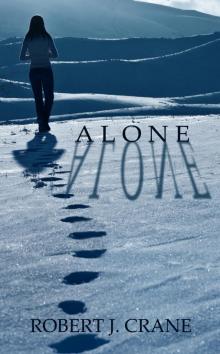 Alone: The Girl in the Box, Book 1
Alone: The Girl in the Box, Book 1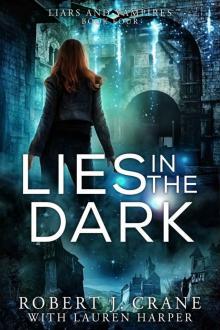 Lies in the Dark
Lies in the Dark Cold
Cold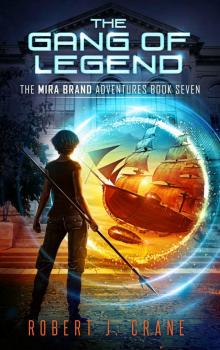 The Gang of Legend
The Gang of Legend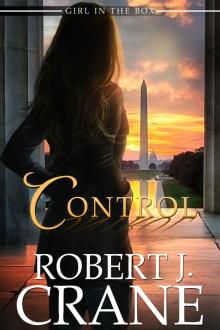 Control: Out of the Box (The Girl in the Box Book 38)
Control: Out of the Box (The Girl in the Box Book 38) Someone Should Save Her
Someone Should Save Her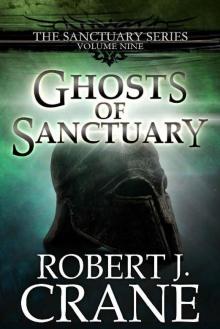 Ghosts of Sanctuary
Ghosts of Sanctuary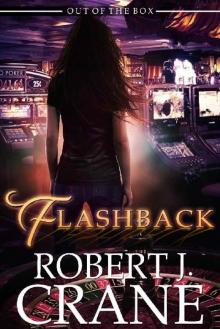 Flashback (Out of the Box Book 23)
Flashback (Out of the Box Book 23)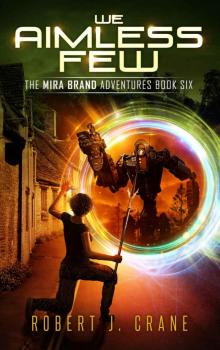 We Aimless Few
We Aimless Few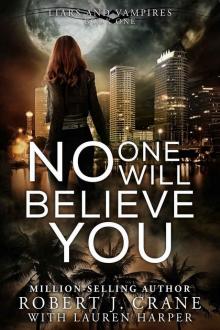 No One Will Believe You
No One Will Believe You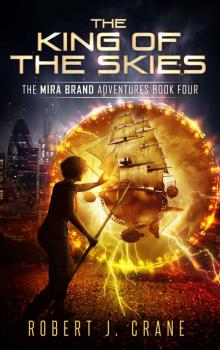 The King of the Skies
The King of the Skies Apex
Apex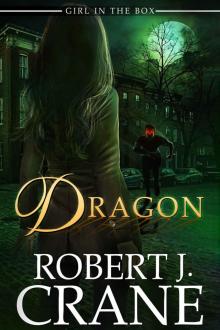 Dragon: Out of the Box (The Girl in the Box Book 37)
Dragon: Out of the Box (The Girl in the Box Book 37)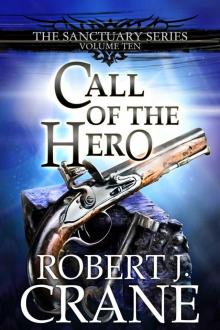 Call of the Hero
Call of the Hero Blood Ties
Blood Ties A Home in the Hills
A Home in the Hills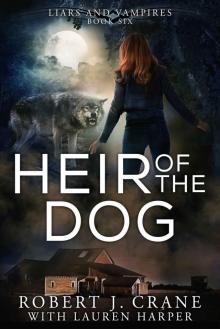 Heir of the Dog (Liars and Vampires Book 6)
Heir of the Dog (Liars and Vampires Book 6)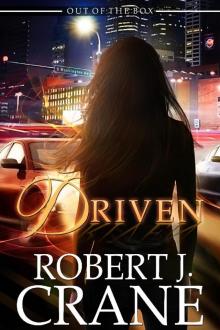 Driven
Driven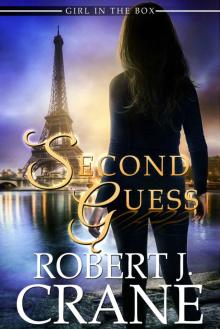 Second Guess (The Girl in the Box Book 39)
Second Guess (The Girl in the Box Book 39)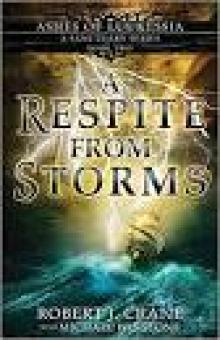 A Respite From Storms
A Respite From Storms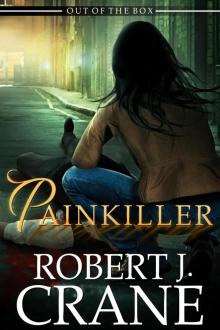 Painkiller
Painkiller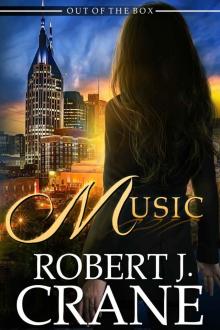 Music: Out of the Box 26 (The Girl in the Box Book 36)
Music: Out of the Box 26 (The Girl in the Box Book 36)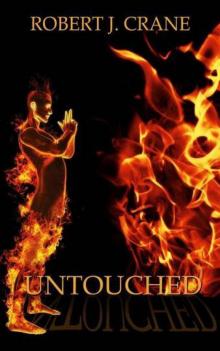 Untouched tgitb-2
Untouched tgitb-2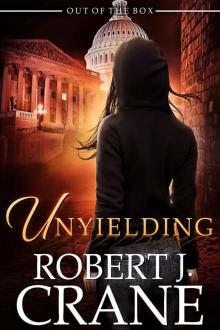 Unyielding (Out of the Box Book 11)
Unyielding (Out of the Box Book 11)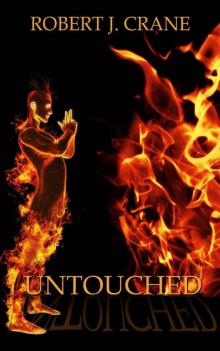 The Girl in the Box 02 - Untouched
The Girl in the Box 02 - Untouched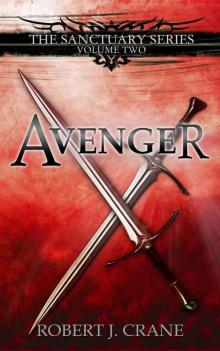 The Sanctuary Series: Volume 02 - Avenger
The Sanctuary Series: Volume 02 - Avenger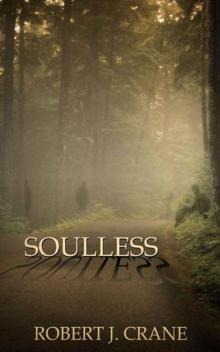 Soulless tgitb-3
Soulless tgitb-3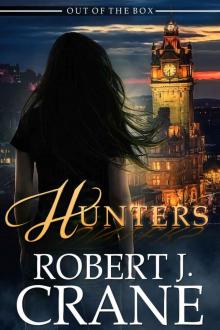 Hunters (Out of the Box Book 15)
Hunters (Out of the Box Book 15)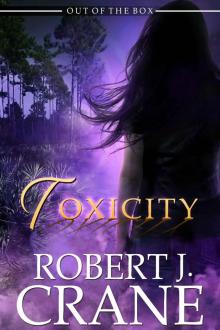 Toxicity (Out of the Box Book 13)
Toxicity (Out of the Box Book 13)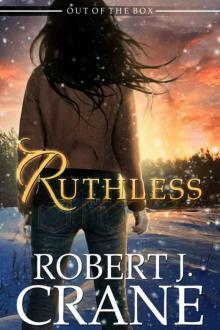 Ruthless (Out of the Box Book 3)
Ruthless (Out of the Box Book 3)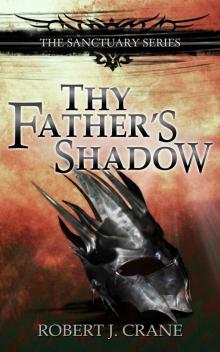 Thy Father's Shadow (Book 4.5)
Thy Father's Shadow (Book 4.5)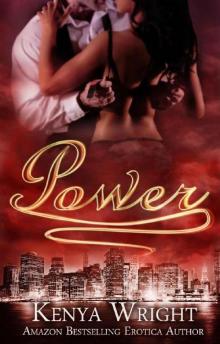 Power
Power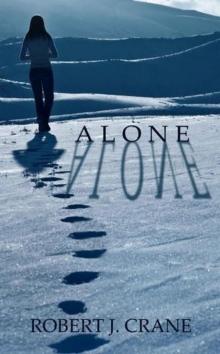 Alone tgitb-1
Alone tgitb-1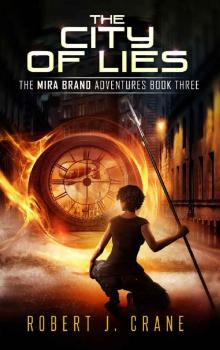 The City of Lies (The Mira Brand Adventures Book 3)
The City of Lies (The Mira Brand Adventures Book 3)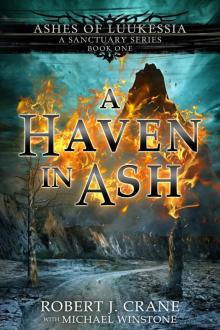 A Haven in Ash
A Haven in Ash Family
Family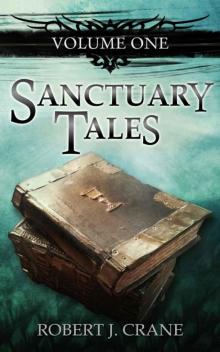 Sanctuary Tales (Book 1)
Sanctuary Tales (Book 1) Hero
Hero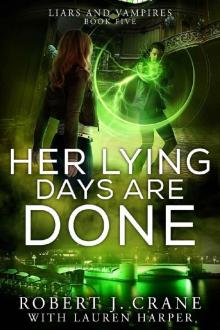 Her Lying Days Are Done
Her Lying Days Are Done![Crane, R [ Southern Watch 03] Corrupted Read online](http://i1.bookreadfree.com/i1/04/02/crane_r__southern_watch_03_corrupted_preview.jpg) Crane, R [ Southern Watch 03] Corrupted
Crane, R [ Southern Watch 03] Corrupted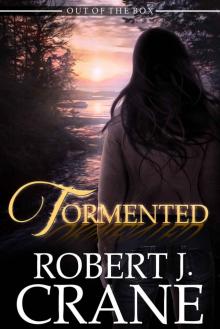 Tormented
Tormented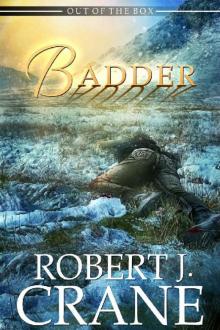 Badder (Out of the Box Book 16)
Badder (Out of the Box Book 16)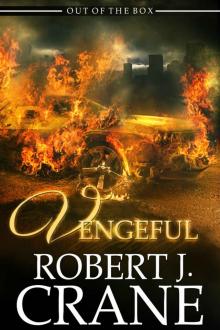 06 - Vengeful
06 - Vengeful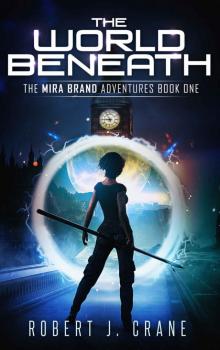 The World Beneath (The Mira Brand Adventures Book 1)
The World Beneath (The Mira Brand Adventures Book 1)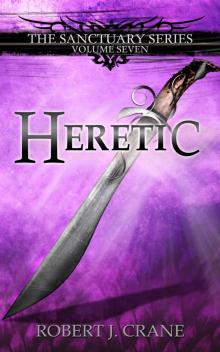 Heretic (The Sanctuary Series Book 7)
Heretic (The Sanctuary Series Book 7)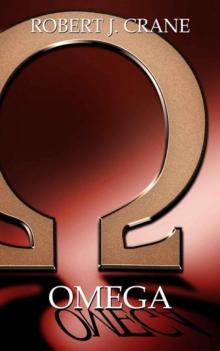 Omega tgitb-5
Omega tgitb-5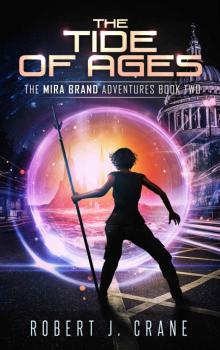 The Tide of Ages (The Mira Brand Adventures Book 2)
The Tide of Ages (The Mira Brand Adventures Book 2)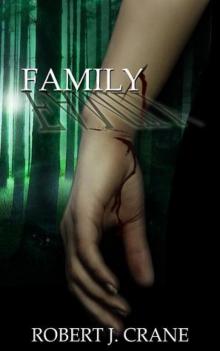 Family tgitb-4
Family tgitb-4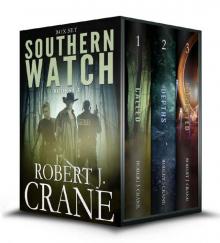 The Southern Watch Series, Books 1-3: Called, Depths and Corrupted
The Southern Watch Series, Books 1-3: Called, Depths and Corrupted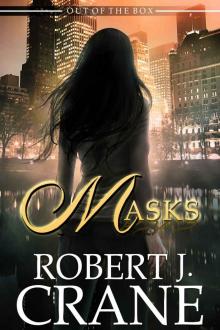 Masks (Out of the Box Book 9)
Masks (Out of the Box Book 9)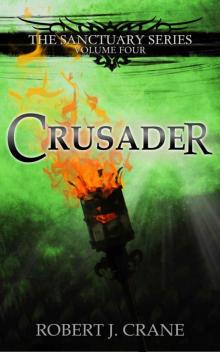 Crusader: The Sanctuary Series, Volume Four
Crusader: The Sanctuary Series, Volume Four Out of the Box 7 - Sea Change
Out of the Box 7 - Sea Change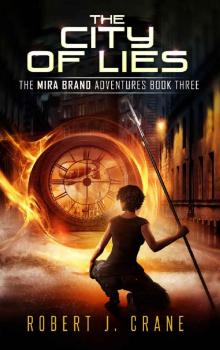 The City of Lies
The City of Lies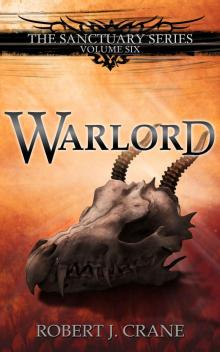 Warlord
Warlord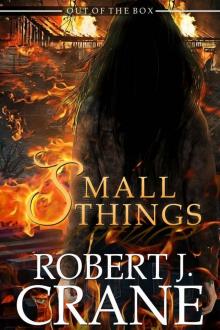 Small Things (Out of the Box Book 14)
Small Things (Out of the Box Book 14)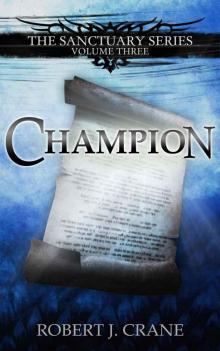 The Sanctuary Series: Volume 03 - Champion
The Sanctuary Series: Volume 03 - Champion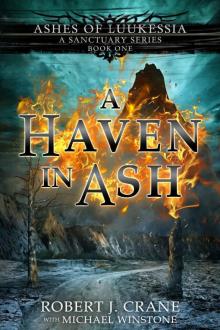 A Haven in Ash (A Sanctuary Series) (Ashes of Luukessia Book 1)
A Haven in Ash (A Sanctuary Series) (Ashes of Luukessia Book 1)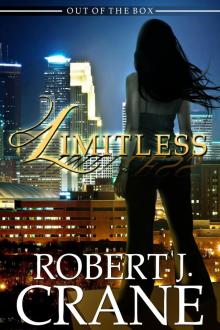 Limitless
Limitless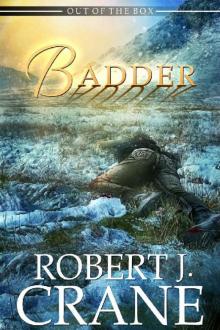 Badder
Badder Legend
Legend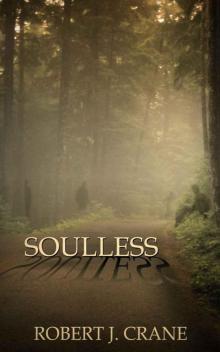 The Girl in the Box 03 - Soulless
The Girl in the Box 03 - Soulless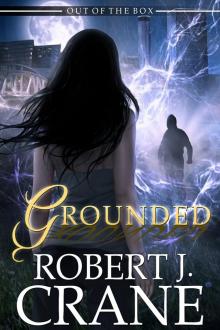 Grounded (Out of the Box Book 4)
Grounded (Out of the Box Book 4) In the Wind (Out of the Box Book 2)
In the Wind (Out of the Box Book 2)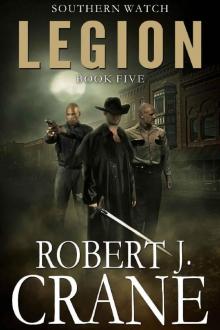 Legion (Southern Watch Book 5)
Legion (Southern Watch Book 5)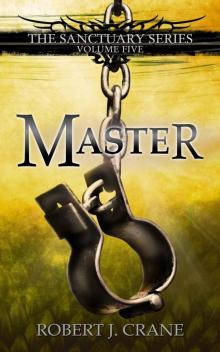 Master (Book 5)
Master (Book 5)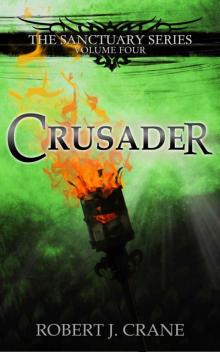 Crusader s-4
Crusader s-4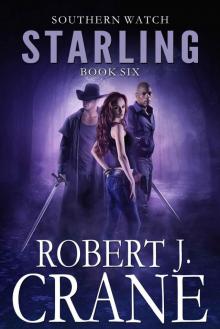 Starling (Southern Watch Book 6)
Starling (Southern Watch Book 6)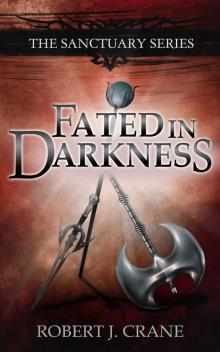 Sanctuary 5.5 - Fated in Darkness
Sanctuary 5.5 - Fated in Darkness